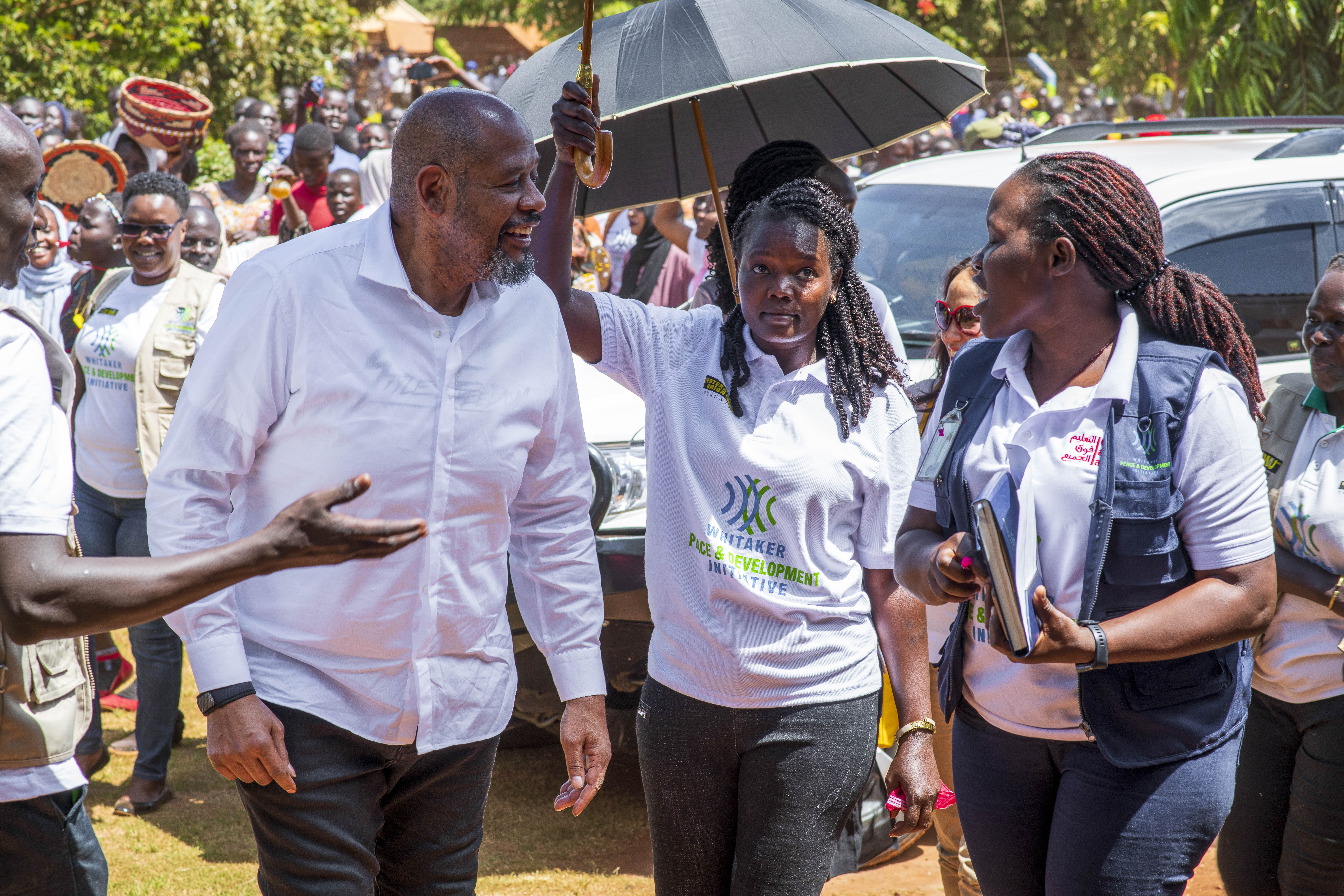A blog post by Forest Whitaker on World Refugee Day June 20th, 2024

World Refugee Day serves as a reminder of refugees’ plight and remarkable resilience worldwide and of our need to gather the collective power of empathy. In 2024, this annual occasion, designated by the United Nations and observed every June 20th, is centered around the theme “Hope away from home – a world where refugees are always included,” summoning us to reaffirm our commitment to solidarity and support for those forced to flee their homes.
Today in particular, I am reminded of my first experience of forced displacement, which was with people displaced by the internal conflict in South Sudan. It was back in 2014, a few months after the start of the civil war, I visited an internally displaced persons (IDP) camp, who had taken refuge in an area hastily set up by the UN to protect them. The place I visited felt grim – filled with makeshift tents and inhabited by people whose despair and anger filled the air.
This place mirrored all the images I had seen of refugee camps. Above all, I could not help noticing how children and youth were left to themselves with nothing to do except brood over their misery and think about revenge. I could see the next generation of fighters getting emotionally ready for yet another war. Yes, they had shelter – but, I realized that a shelter is not a home, that is a place where you will feel at peace with yourself and your loved ones. I could see how these refugees had not just lost their homes to conflict or catastrophe, they were in fact without a home – period.
What I learned that day is how difficult emergency situations can be, forcing us to rush and address everyday crises, making it nearly impossible to take time and lay the foundations for a home that is more than a shelter. As I walked through the camp, I wondered how I could complement the immense efforts of emergency organizations and help the displaced feel more at home. I asked myself: what are the things that children and youth love that WPDI could help with in a situation of forced displacement?
Two words came to me: movies and sports. And so, we started just that: a cinema program and sports program, both designed to entertain good spirits and to teach peace, preparing a generation not of vengeful soldiers but of peacebuilders. Watching movies together and playing for a team, or merely rooting for it, is no substitute for a home, of course, but it creates a feeling of community and conveys hope that a better present will lead to a better future. I felt relieved when the programs turned out to be highly popular and successful – notably when the residents petitioned the camp management to keep our – their – sports field at all cost despite the expanding population.
At a deeper level, this program – which is still active because the conflict is not over yet – inspired me to expand the scope of WPDI and develop a number of different programs for refugees, which we did in Uganda back in 2017 at the Kiryandongo Refugee Settlement. We built a Community Learning Center in the settlement for refugees to access the internet and courses in conflict resolution, ICT, and entrepreneurship, as well as our sports and cinema programs. Each of the programs we have implemented and continue to implement there has brought amazing results.
The camp authorities reported a cooling of interethnic conflicts within six months, implying that the settlement was becoming more peaceful, more homely. Our business incubation program has restored hope for thousands of refugees helping them bring food home. We had children’s soccer teams making it into regional and national championships, including a young South Sudanese refugee who became a member of the national team upon her return home. Thanks to our scholarship program, girls have been able to stay in education, with some of them now even going to college.
Hearing of these young women going to the university gave me pause for thought on the ultimate meaning of our actions. Statistics show that these young women were not “destined” for higher education. They were, due to economic and cultural constraints, “destined” to stay at home. What I realized with this handful of young female refugees is that the issue was not just to recreate a home, but also to create hope that as individuals, we can find a place of ours in this world.
As evoked in the theme of World Refugee Day 2024, it is always possible to nurture hope away from home – and it is always a duty for us to ensure that refugees and displaced persons can be offered opportunities to have a place in the world, which is of benefit for all. This is something that I have directly witnessed with our business incubation program, through which refugees generate profits for everyone, not just themselves but also their host communities.
Taking this lesson on board, WPDI started a partnership with UN Women last year to implement a new business incubation program for vulnerable women at two refugee settlements of Uganda, in the area of Adjumani. Many other NGOs are working in similar directions, empowering refugees as assets for themselves and their host communities.
On World Refugee Day, I see this as good news: we may be at the beginning of a global movement to help build a home for their hopes – or so I hope.
In Peace,
Forest Whitaker